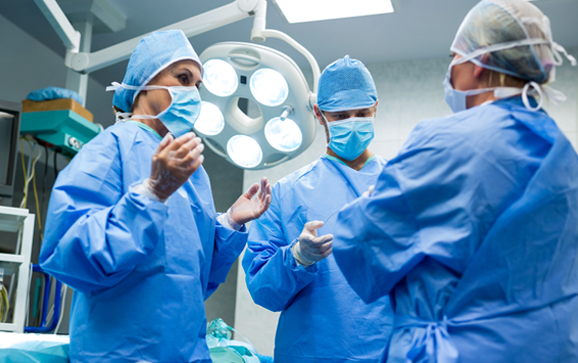- Written By:Barb Miller, RN, BSN
As a part of Stroke Month, last week I wanted to touch on the signs and symptoms of strokes, and why it is so important that to call 9-1-1 immediately if a stroke is suspected. This week I want to raise the topic of stroke recovery. If you’ve ever had experience with a loved one after a stroke, you know there is more to recovery than regaining movement and speech. Survivors also face an uphill battle when it comes to regaining their emotional and cognitive abilities.
While stroke affects everyone differently, often the impact on a survivor’s personality is the most difficult for family and friends to understand and to become accustomed. It’s normal for emotional changes to occur after any type of stroke. Mood disorders such as depression, anxiety and Pseudobulbar Affect (PBA) are fairly common results of stroke and can be profound when it means a loss of independence.
Psuedobulbar affect, known also as “emotional liability,” or “reflex crying” can stress the lives of survivors, by making social interaction unpredictable and difficult. Depression is typically the most common emotional change after stroke, but other psychological changes can be just as debilitating and frustrating.
It is also common for stroke survivors to experience cognitive challenges in thinking, such as difficulty solving problems, present memory issues and other types of communication challenges. Many survivors experience some level of apathy and don’t seem to care about anything. This can be mistaken for depression, when survivors seem content to sit and stare off into space.
While rehabilitation is difficult, it is possible to get back to a fairly normal life. There are a number of workable solutions to most difficult situations if the problems are approached with patience, ingenuity, perseverance and creativity. Early recovery and rehabilitation can improve functions and sometimes remarkable recoveries for someone who suffered a stroke.
At St. Mary’s Medical Center, we are committed to giving our patients all the tools and resources available to support them in their recovery. Below are some tips we’ve put together for stroke survivors during the rehabilitation process:
- Believe in yourself. The biggest mistake most stroke survivors make is assuming a full recovery is not possible – but it is.
- Make repetition your new best friend. Practicing rehab exercises sporadically will not encourage recovery. The brain needs a high number of repetitions to successfully rewire itself and heal.
- Set goals and measure your progress. Approaching rehab exercises indifferently won’t motivate you to keep moving forward. Set benchmarks and take steps to actively get there.
- Lean on friends and family. You are likely to have a team of therapists and doctors who will support you through your recovery. But, when you are on your own, be sure to schedule time with friends and family to socialized and relax. This will help tremendously in easing depression or anxiety.
- Understand all possible side effects. Stroke side effects vary and may not develop until later on in recovery, like emotional lability. By staying on top of the potential side effects that you may experience, you can avoid panicking if something goes wrong.
Rehab sessions consume a minimum of three hours a day for most patients. But, starting early–especially in that first month, with dedication to a plan, statistics confirm better outcomes for stroke survivors.
We also want to encourage family and friends to take a role in the recovery process. Below are a couple tips for those of you who are on the caregiver side of the equation.
- Get stroke smart.After a stroke, you’ll enter a new world with unfamiliar words, people and routines. Lack of knowledge is one of the biggest initial hurdles you’ll face. Be sure to talk with the patient’s healthcare team every chance you get and attend support groups.
- Meet the team. Be sure to meet with the doctors and nurses caring for your loved one. This team can guide you through the recovery process. Don’t be shy about asking questions!
- Advocate for rehab. One of the most important parts of recovering from a stroke is rehabilitation, which can help your loved one regain independence. Work with the doctor to ensure that rehab is part of the recovery plan after being discharged from the hospital.
- Take notes.As a caregiver, you’ll likely be tasked with coordinating healthcare needs, such as medications and rehab appointments. Taking notes keeps you organized.
- Create a safe place. It can be scary for you and stroke survivor to come home. Ask the care team what can be done to make the home safer. They may suggest removing rugs to prevent falls or installing grab bars in the bathroom to help with stability.
- Help prevent another stroke. Stroke survivors are at higher risk for having another one, so encourage lifestyle changes that lower your loved one’s risk. Healthy, low-fat meals, daily exercise routines, medication reminders and keeping doctor appointments are all good steps for keeping them on track.
Finally, remember – when stroke occurs, time is the enemy. Time lost is brain lost. Learn the signs of stroke and call 9-1-1.
Barbara Miller is St. Mary’s Stroke Program Coordinator and can be reached at 816-655-5563.


